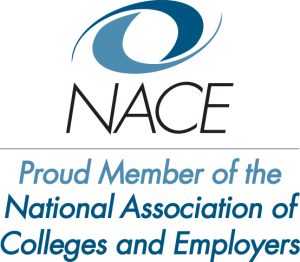Career Guidance: Make Sure You Get What You Need
Authors: Bryan Dik Ph.D. and Ryan Duffy Ph.D.
All of us make choices about our career paths, and all of us benefit from guidance and support as we do so. Many of us have used career counseling to help navigate key points of transition. Career counseling ordinarily involves a one-on-one, face-to-face interaction facilitated by a trained counselor. The term “career guidance” is broader than this; it includes career counseling but also intervention strategies that go beyond a one-on-one interaction to include classroom-based assistance, retreats, and online career assessment systems, among other strategies.
Why do people pursue career guidance?
There are many reasons. The National Career Development Association lists six:
- Learn more about yourself
- Gain educational and occupational information
- Learn more about decision-making and career planning
- Conduct a job search
- Apply to graduate or professional schools or apply for another training program
- Cope with career challenges and transition issues’
When you’re in need of career guidance, ask yourself this question:
What am I hoping to get from this? Answering this will help you identify the best source of career guidance for you. Are you generally a motivated, self-directed person? If so, self-help resources such as books or online assessment systems may give you everything you need. If added layers of support are needed, don’t hesitate to reach out to a career counselor.
What makes a good career counselor?
This is not a simple question to answer. In the classic career self-help book What Color is Your Parachute?, Richard Bolles divides counselors into three types: (1) the honest ones who know what they are doing, (2) the honest ones who don’t know what they are doing, and (3) the dishonest ones who don’t know what they are doing and only want your money. Obviously, when you spot the third type (which should be pretty easy), head for the exits. But how do you make sure you don’t end up with the second type? The first step is using your social network to find names of good counselors, arranging for an initial meeting, and then evaluating this person.
Red Flags
As Bolles points out, some big red flags would be if the counselor guarantees success (impossible to promise this side of heaven), if the counselor only talks about outcomes experienced by her or his “best” clients, or if the counselor tries to sell you on an exorbitant payment plan for services. It also is important to look for the less obvious, but often equally important, facets of a good career counselor.
- What kind of training does my counselor have?
- Is my counselor collaborative and a good listener, or does she or he just tell me what to do, or what I want to hear?
- Are they interested in hearing about my specific life circumstances, or am I simply being fed some preplanned program?
- Is my counselor warm, supportive, and empathic?
- Will my counselor help me set and achieve goals?
As a consumer, you have a right to receive quality services from a career counselor, and asking these types of questions in an initial meeting is important.
Upon your first visit to a counselor, voice your primary reasons for getting help and ask the counselor to describe the expertise and experience she or he has in these areas. Knowing a counselor’s training and credentials, professional experience, and general approach to working with clients can help you evaluate whether this person is well-equipped to offer you the type of career guidance you most need.
What makes for good career counseling?
After you have conducted your initial evaluation and chosen a good career counselor, you will want to ensure you are getting the help that best addresses the reasons you sought career guidance. NCDA has a helpful list of the strategies and services that a well-trained career counselor should be able to provide to clients, and this list gives you a sense of what you, the consumer, have a right to expect.
A good counselor should be able to:
- Create a supportive counseling environment that helps you feel determined and motivated
- Administer assessments of skills, interests, personality, and values if you need them
- Actively explore with you where your career difficulties are coming from
- Build solid decision-making skills that fit with your personality
- Use computer-based and internet resources to help with your career planning and job search process
- Work with you to develop short- and long-term career plans
- Help you learn job search strategies and skills
- Provide empathic support for career-related stressors
- Refer you to other professionals if she or he cannot provide the services you need
These skills are essential for clients to make progress on their career-related difficulties. Research has found that counselors who are supportive and empathic, who attend to the specific needs of clients, and who set short- and long-term goals tend to have the most satisfied and successful clients. It is important to know that career counseling will not work perfectly for everyone, and that success should be judged not only on landing a job but on the extent to which the process helps you gain insight about yourself that can be used to inform your career decisions. This type of insight is especially important for people seeking career guidance in hopes of finding their purpose in the world of work.
Guest author Ryan Duffy, PhD, is Professor of Psychology at the University of Florida.
-1.png?width=288&height=67&name=PathwayU_PGLogo%20(1)-1.png)



